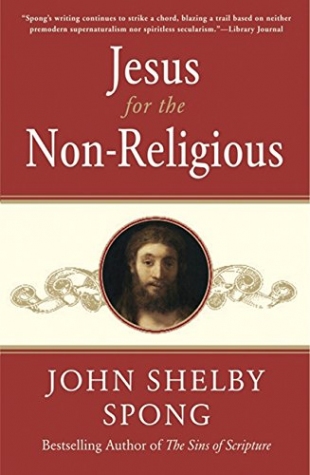John Shelby Spong was the Bishop of the Episcopal Diocese of Newark for 24 years before his retirement in 2001. He now delivers more than 200 public lectures a year at universities and churches around the world, including Harvard where he is a visiting lecturer. He notes in the preface to this book that throughout his professional life he has followed the motto of his theological seminary: "Seek the truth; come whence it may, cost what it will."
Spong is convinced that a new Christianity is emerging from "the death of the old supernatural forms of yesterday's Christianity." In parts 1 and 2 of this volume, he separates the human Jesus from the myth (no star over Bethlehem, his parents as fictionalized composites, nature miracles as interpretive signs, etc.) and then examines the original images of Jesus (the Son of Man, the Servant, the Shepherd, etc.). Much of this material will be familiar to those who have read Spong's many other books.
The last section is an eye-opener. It deals with "Jesus for the Non-Religious," a phrase from Lutheran theologian Dietrich Bonhoeffer who envisioned a new religionless Christianity. Spong, like many others, laments the doctrines of conservative Christianity which have given rise to the religious anger that fuels the hatred of women, homosexuals, and non-believers in the inerrancy of the Bible. "I submit," he counters, "that this constant onslaught of ecclesiastical negativity comes directly from our theistic portrait of God, who has been traditionally understood as a punishing parent figure." The themes of guilt and degradation have been hammered home to believers in millions of sermons and Bible tracts.
This religion-based anger is divisive and characterized by enmity for outsiders and strangers. Jesus offers another option. Spong sees him as the breaker of tribal boundaries. He presented to his disciples and others "a new and inclusive kind of life" outside of tradition and in solidarity with all people. Spong also sees Jesus as the breaker of prejudices and stereotypes, and this makes him really relevant to our times when race, gender, and sexual orientation are the major areas where hatred divides people from each other. And, finally, there is Jesus as the breaker of religious boundaries, which was, of course, the thing that got him into so much trouble. The author concludes:
"Jesus was not divine because he was a human life into whom the external God had entered, as traditional Christology has claimed; he was and is divine because his humanity and his consciousness were so whole and so complete that the meaning of God could flow through him. He was thus able to open people to that transcendent dimension of life, love and being that we call God."
